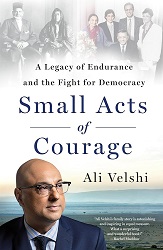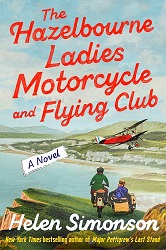I have been a fan of Kevin Roose since reading his first book, The Unlikely Disciple, and always enjoy how varied his subjects have been. In The Unlikely Disciple, he went undercover at an evangelical university. In his next book, Young Money, he looked at what life was like in finance for those who arrived on Wall Street in the immediate wake of the 2007/2008 financial crisis. More recently, he has been a technology columnist at The New York Times, which led to his third book: Futureproof: 9 Rules for Humans in the Age of Automation.
In 2024, discussions of AI are now inescapable in most workplaces. Microsoft has given us Copilot (“Your everyday AI companion”) to take meetings notes and Speaker Coach to let you know if you’re monopolizing meetings or being repetitive – or even insensitive – when talking. When Futureproof was published in 2021, this was all in its infancy but the concerns Roose is focused on have not changed. While AI offers some interesting opportunities, the big question facing us today is “how to be a human in a world that is increasingly arranged by and for machines”?
Roose is far from a luddite. As a journalist focused on the technology sector, he has far more exposure to the weird and wild innovations that are looking to reshape our future – and he is concerningly skeptical about what he has seen:
If I had to rank myself on a 1-to-10 worry scale, with 1 being ‘AI will cause to economic or societal problems whatsoever’ and 10 being ‘AI will destroy us and everything we hold dear,’ I’d probably hover around a 7.
Roose, like many of us, is concerned about the lack of controls in place to prepare industries and workers for the impact of AI. His nine “rules” can be used by individuals as they shape their career paths but would be most useful in the hands of industry leaders and politicians. He’s not naïve enough to think this will happen but he fears what will happen to society – especially in countries like America, with limited social supports – as humans are replaced by machines.
AI optimists are broadly correct in claiming that new technology enhances our quality of life in the aggregate, and that once we acclimate to it, we rarely want to return to the old way of doings things […]
But what optimists miss is that we don’t live in the aggregate, or over the long term. We experience major economic shifts as individuals with finite careers and lifespans, and for many people, technological change hasn’t always resulted in better material conditions during their lives.
As we are all too well aware, the legacy of lost jobs and gutted industries isn’t just economic. It leads to seismic shifts in society, which are harder to predict and even harder to prepare for.
What I did find fascinating was Roose’s use of a Canadian example to illustrate how “big nets and small webs” can help create resilience in times of change. When Research in Motion (RIM), the company behind Blackberry, crashed it had a huge impact on Waterloo, the Ontario university town turned tech hub where the company was based. Suddenly, there was a huge number of unemployed tech workers who were used to stable, well-paying jobs. In other places, Roose argues, this could have gone badly. But instead, there were “big nets” in place – our Canadian healthcare system meant no one needed to worry about essential care for themselves or their families and the provincial government stepped in with support to try and keep the workers in the region – as well as “small nets”, in the form of a tight-knit local community that offered up free office space and set up a referral network to help unemployed workers find new jobs.
Also fascinating were the policy ideas that have been suggested, in some cases by industry insiders. These include things like a “robot tax” (suggested by Bill Gates), which would require companies to pay additional tax for each labour-displacing robot they implement. At the time this was written (and I assume unchanged today), US tax law incentivized automation by having a lower tax on equipment than on human labour. A change may not slow the roll out of robots but would create a revenue stream that could be used to expand social safety net programs.
Overall, a fascinating look at the future of AI, what to be excited about, what to be scared about, and how to put sensible controls in place to get the most benefit from it and least disruption for society.

 Library Loot is a weekly event co-hosted by Claire from
Library Loot is a weekly event co-hosted by Claire from  Mrs Quinn’s Rise to Fame by Olivia Ford – Seventy-seven year old Jenny secretly applies to compete on a popular televised baking competition and, while that doesn’t remain a secret from her husband of almost sixty years for long, the competition does start Jenny thinking about a much bigger secret she has been keeping for six decades. As twee and predictable as you’d expect, but I still happily read it.
Mrs Quinn’s Rise to Fame by Olivia Ford – Seventy-seven year old Jenny secretly applies to compete on a popular televised baking competition and, while that doesn’t remain a secret from her husband of almost sixty years for long, the competition does start Jenny thinking about a much bigger secret she has been keeping for six decades. As twee and predictable as you’d expect, but I still happily read it.




